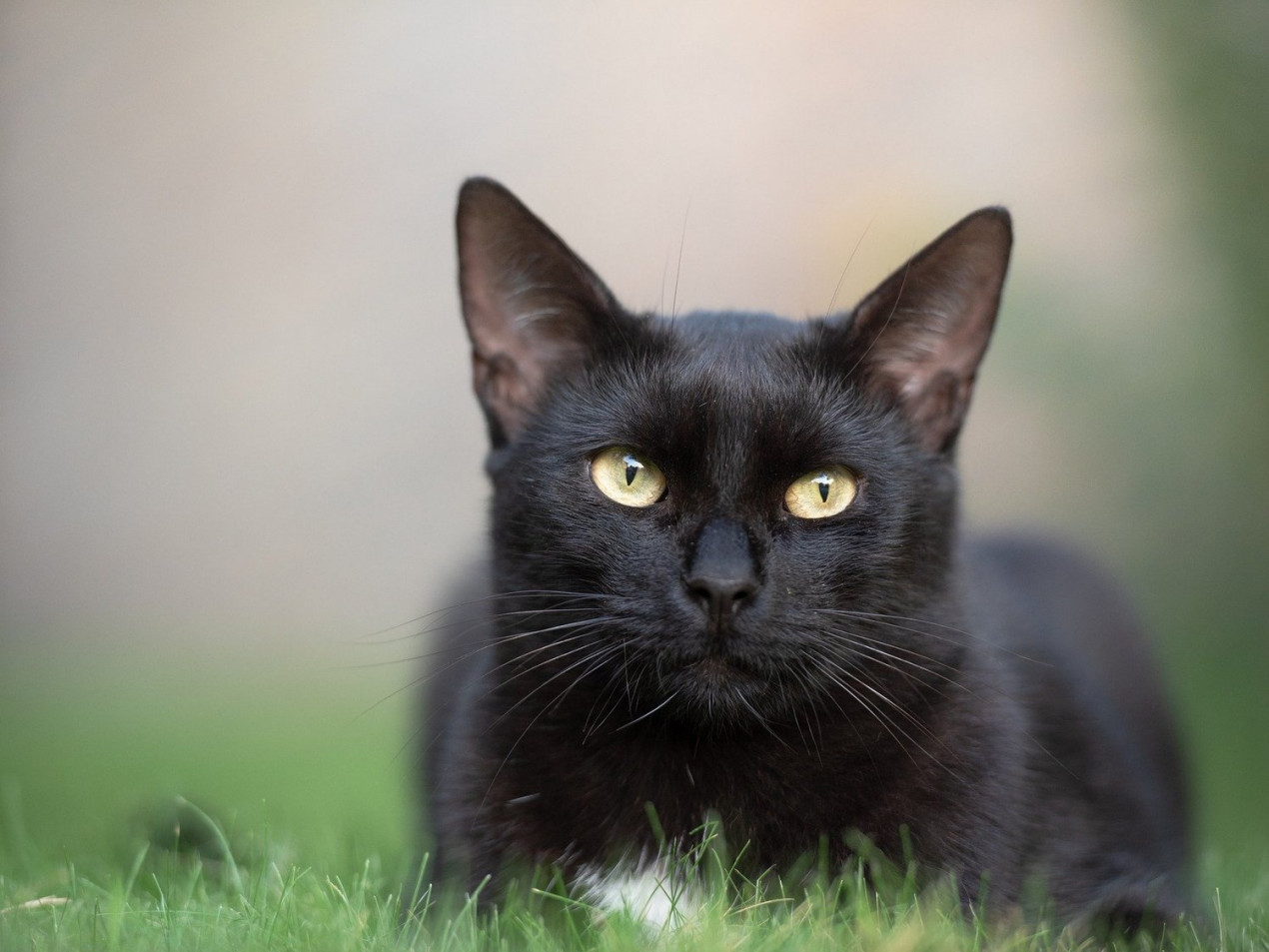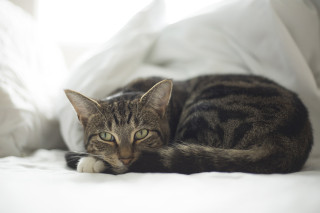
What does blood in my cat's poo mean?
Finding blood in your cat’s poo can be a frightening sight and it’s normal to think it always indicates something serious. But there are actually lots of different reasons why there might be blood in your cat’s poo and many of them are easily treatable. Causes of blood in cat poo include food allergies or eating something unsuitable, infection, parasites, reaction to some medications, anal gland issues and colitis (inflammation of the large intestine). Even stress can cause blood in your cat’s poo, for instance if you’ve recently moved house or it’s fireworks season. Other possible reasons include pancreatitis, toxicity (like eating rat poison), cancer or blood disorder. While many of these clinical causes are mild, others are life-threatening and will need emergency treatment so always speak to a vet to be safe.
What to do when there's blood in your cat's poo?
If your cat is passing blood with its faeces you should always contact a vet to rule out anything serious and ensure they receive any treatment they might need. While it’s possible that blood in your cat’s poo could indicate something serious, there are also lots of milder causes that can be treated. Be prepared to describe the consistency (is it hard or soft), the colour of the blood (bright red or dark?), any changes to the colour of the stool and any other potential details that could help diagnose the problem – for example, has your cat been near something toxic or have they had any other symptoms? If you can collect a sample of your cat’s bloody poo to show the vet that would be ideal. A picture of the cat’s faeces could also be helpful.
If you think your cat’s condition might be serious and it’s at night when your daytime vet is closed, our clinics across the country are here for you. Find your nearest Vets Now pet emergency clinic here.
If you’d like some advice and peace of mind, our vets are available to video chat every day between 8am and 11pm. Learn more about our online consultation service here.
Is blood in cat poop normal?
While blood in your cat’s poo doesn’t always indicate something life-threatening, it’s not normal and not something you should ignore. Even milder causes will often need to be treated by a vet and in the case of more serious causes like toxicity, there isn’t any time to waste.

My cat's pooing blood but has no other symptoms, what does this mean?
Remember that cats are very good at hiding signs of illness so just because you can’t see any other obvious signs it doesn’t mean you should ignore the blood in their poo. Don’t wait for other clinical signs to appear, the blood itself is enough to warrant a call to the vet. While the cause might be mild and not a massive cause for concern, it’s always better to be safe than sorry.
Can worms cause blood in cat poop?
Worms and other parasites are one of the possible causes of blood in your cat’s poo. But even cats that seem healthy can have worms, so it’s important to regularly worm them, even if they aren’t showing signs or if they are indoors only. Worms can make your cat very unwell (and some can be passed on to humans). Prevention is better than cure, so it’s always important you make worming a regular part of your routine. Find out more about how to treat worm in your cat here.
Can stress cause blood in cat poop?
Severe stress can cause blood in cat’s poo. Situations like moving house, boarding your cat when you go on holiday or around fireworks night can all cause your cat stress. It’s a good idea to seek advice from a vet if you suspect your cat is pooing blood due to stress as they may be able to offer ways to help. There’s also a chance that your cat’s clinical signs are due to an underlying condition which your vet will be best placed to diagnose and treat.
If you’d just like some advice and peace of mind our vets are available to video chat between 8am and 11pm every day.
Is blood in cat poo an emergency?
There are so many possible clinical causes of blood in your cat’s poo that it’s impossible to say whether it’s an emergency without knowing more information. While many causes of bloody poo are mild, others , such as rat poison toxicity, are life-threatening and would require emergency treatment. It’s always worth speaking to a vet and talking through your cat’s clinical signs and anything that might have led to them pooing blood. Depending on how the conversation goes they might simply ask you to monitor your cat, advise you to book an appointment to get them checked over or recommend you get them to a vet right away. Giving your vet a call or having a video vet consultation will either put your mind at ease or ensure your cat receives treatment if they need it.
If you think your cat’s condition might be life-threatening or require urgent treatment contact your vet or, out of hours, your nearest Vets Now pet emergency clinic, so they can be treated as quickly as possible.
Can changing cat food cause blood in poo?
Suddenly changing your cat’s food could cause an upset stomach which could result in blood in their stool. That’s why it’s important to transition from their current food to their new diet gradually. It’s also possible that their bloody stools have been caused by your cat eating something that isn’t suitable for them. If you think the blood in your cat’s poop has been caused by eating something be sure to let the vet know as this could help them diagnose and treat the problem.
How to treat bloody stool in cats?
Treatment for blood in your cat’s stool will depend on what’s causing it in the first place. Depending on what the vet diagnoses, possible treatments include eliminating or changing something in their diet, medication, anti-parasite treatment, fluids to treat dehydration and performing surgery, among many other options. Your vet will have a better idea once they have examined your cat and diagnosed what’s causing them to pass blood in their stool.
What is stress colitis in cats?
Colitis is an inflammation of a cat’s colon, also known as the large or lower intestine. Colitis can be brought on by stress while other common causes include worms and food intolerance or allergies. It can be chronic, meaning it has developed over a long period of time, or acute, meaning it comes on quickly and intensely. Common symptoms of colitis in cats include watery or bloody diarrhoea and mucus or jelly in their poo. Other symptoms include excessive straining to poo, constipation, flatulence, lack of appetite and weight loss.
If you notice your cat is displaying these clinical signs it’s possible that a stressful situation like boarding or environmental changes could have caused colitis. But it’s always wise to speak to a vet to ensure that this is the cause of their clinical signs and they don’t have an underlying condition that requires treatment, like an infection or injury.
Don’t forget, our pet emergency clinics across the country are open at night, weekends and bank holidays when daytime vets are closed. Find your nearest Vets Now here.
If you’re looking for some advice from the comfort of your home you can book an online video consultation with our vets.

